Unmasking Acne: Causes, Prevention, and Effective Treatments
Posted on |
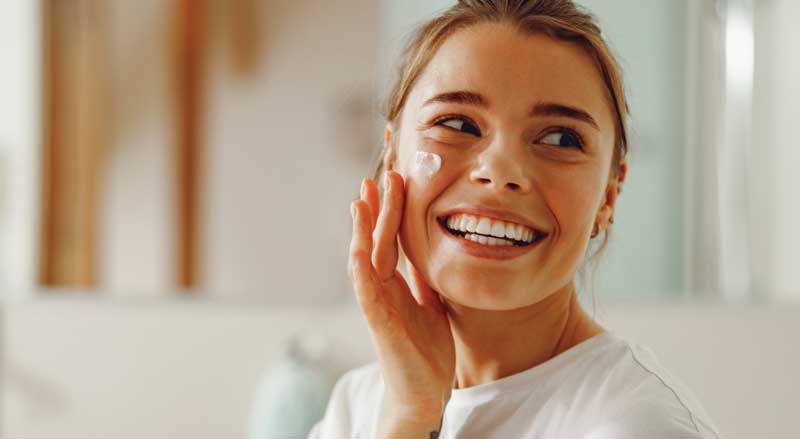
Waking up to an unexpected pimple on an important day can be frustrating and deflating. Whether you’re preparing for a client meeting, delivering a presentation, or attending a special event like prom, feeling confident in your skin can make a world of difference. Acne can impact your self-esteem, but it doesn’t have to define your day—or your skin’s future.
Achieving clear, radiant skin involves understanding the factors behind acne and adopting the right habits to prevent and treat breakouts. In this blog, we’ll explore five essential habits that can help you take control of your skin and move closer to a flawless complexion.
Understanding the Causes of Acne
Acne is a common skin condition that affects millions of people worldwide. It occurs when hair follicles become clogged with oil, dead skin cells, and bacteria, leading to inflammation and the development of pimples, blackheads, whiteheads, and, in some cases, cysts. Understanding the root causes of acne can help manage and prevent breakouts effectively.
Excess Sebum Production
Sebaceous glands in the skin produce sebum, an oily substance that helps keep the skin hydrated. However, overactive sebaceous glands can produce too much sebum, which can clog pores and lead to acne.
- Common Triggers: Hormonal changes during puberty, menstruation, pregnancy, or hormonal imbalances like polycystic ovary syndrome (PCOS).
- Prevention Tips: Use skincare products labeled as “non-comedogenic” to avoid clogging pores further.
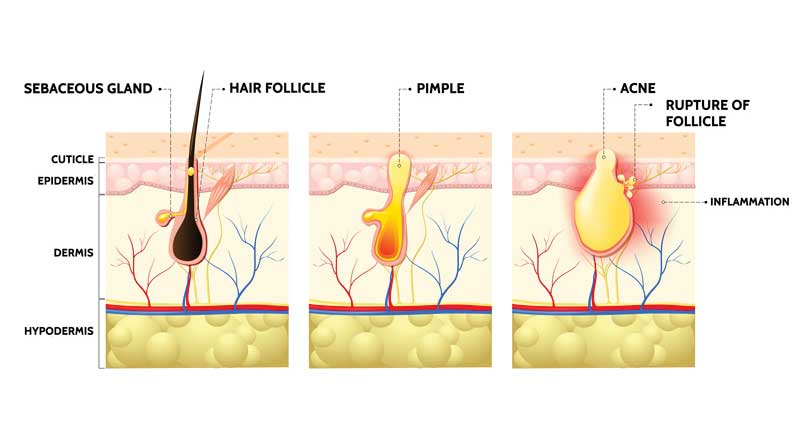
Clogged Hair Follicles
When dead skin cells don’t shed properly, they can accumulate in hair follicles and mix with sebum, creating a plug that blocks the pore.
- Exacerbating Factors: Poor skincare routines, heavy makeup, or not exfoliating regularly.
- Prevention Tips: Gentle exfoliation and cleansing can help remove dead skin cells and prevent clogged pores.
Bacterial Growth
A type of bacteria called Cutibacterium acnes (formerly known as Propionibacterium acnes) naturally resides on the skin. When pores are clogged, the bacteria can multiply, leading to inflammation and the formation of pimples.
- Exacerbating Factors: Touching the face frequently, sharing makeup, or using dirty tools.
- Prevention Tips: Clean makeup brushes regularly, avoid touching your face, and use antibacterial skincare products when needed.
Hormonal Fluctuations
Hormones, particularly androgens, play a significant role in acne. Increased androgen levels can enlarge sebaceous glands, leading to excess oil production.
- Who It Affects: Teens during puberty, women during menstrual cycles, pregnancy, or menopause.
- Management Tips: In some cases, hormonal treatments like oral contraceptives or spironolactone can help.
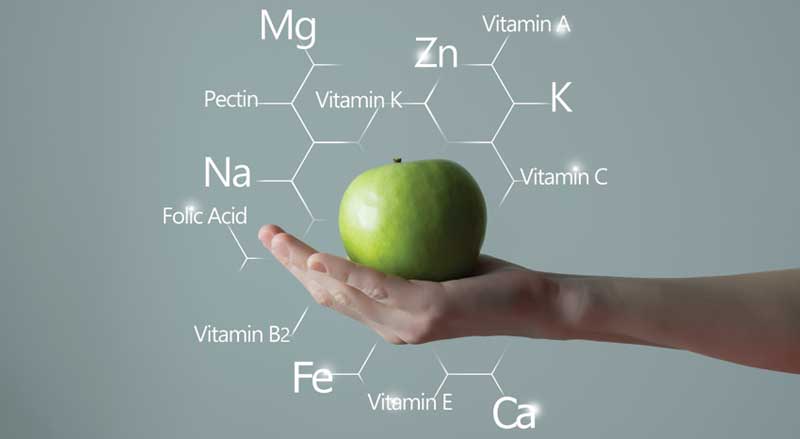
Diet and Lifestyle Factors
Certain foods and lifestyle choices can exacerbate acne, though the relationship varies between individuals.
- Common Culprits: High-glycemic-index foods (sugary snacks, white bread), dairy products, and oily or greasy foods.
- Prevention Tips: Maintain a balanced diet rich in vegetables, whole grains, and lean proteins. Stay hydrated and minimize processed foods.
Stress
There are a variety of symptoms of stress in everyday life. While stress doesn’t directly cause acne, it can worsen existing conditions by triggering hormonal imbalances and increasing inflammation in the skin.
- Signs: Acne flare-ups during exams, high-pressure periods, or emotional distress.
- Prevention Tips: Practice stress management techniques such as yoga, meditation, or regular exercise.

Genetics
Acne can run in families. If your parents or siblings had acne, you may be more prone to developing it as well.
Impact: Genetic factors influence how your skin reacts to hormones, how much sebum your skin produces, and how your body deals with inflammation.
Environmental Factors
External elements like pollution, humidity, and prolonged exposure to the sun can contribute to clogged pores and acne.
- Exacerbating Factors: Sweating in hot, humid weather or wearing occlusive clothing.
- Prevention Tips: Wash your face after sweating, wear breathable fabrics, and use sunscreen suited for acne-prone skin.
Tips for the Prevention and Treatment of Acne
Managing acne involves both prevention and treatment strategies. By adopting a consistent skincare routine and addressing contributing factors, you can minimize breakouts and improve the appearance of your skin. Here are actionable tips for preventing and treating acne effectively.
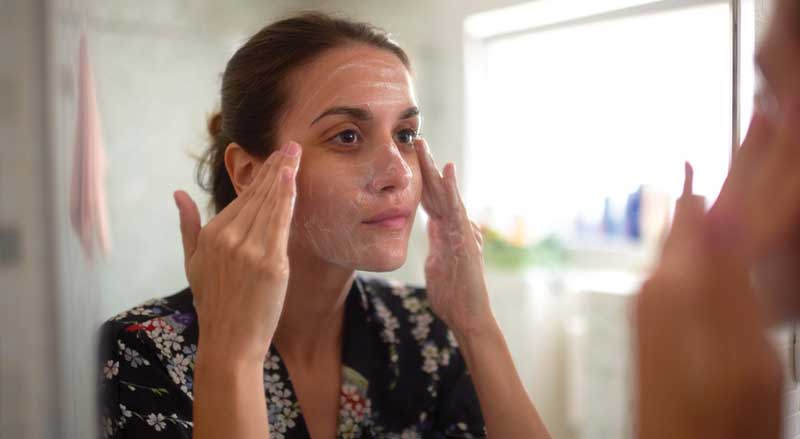
Prevention Tips
Adopt a Gentle Skincare Routine
- Wash your face twice daily with a mild, non-comedogenic cleanser.
- Avoid scrubbing harshly, as this can irritate the skin and worsen acne.
- Use lukewarm water to rinse, as hot water can strip the skin of natural oils.
Moisturize Daily
- Even oily or acne-prone skin needs hydration.
- Use a lightweight, oil-free, non-comedogenic moisturizer to maintain the skin’s balance.
Protect Your Skin from the Sun
- UV rays can exacerbate acne and lead to hyperpigmentation.
- Use a broad-spectrum sunscreen labeled for acne-prone skin.
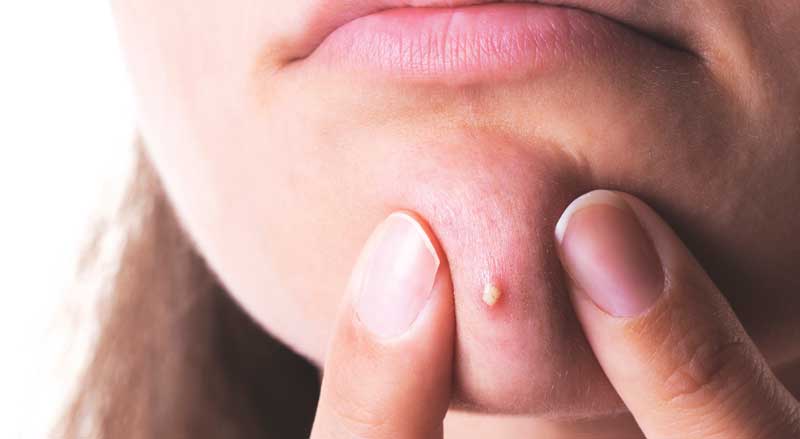
Avoid Touching Your Face
- Your hands carry bacteria and oils that can clog pores.
- Refrain from popping pimples, as this can lead to scarring and infections.
Clean Your Belongings Regularly
- Wash pillowcases, towels, and makeup brushes frequently to reduce bacteria buildup.
- Disinfect your phone screen regularly to prevent transferring oil and bacteria to your face.
Monitor Your Diet
- Avoid high-glycemic foods (like sugary snacks) and limit dairy intake if these trigger your acne.
- Incorporate anti-inflammatory foods such as leafy greens, nuts, and omega-3 fatty acids.
Stay Hydrated
- Drinking enough water helps flush toxins and keeps your skin healthy.

Practice Stress Management
- Stress can worsen acne by disrupting hormonal balance.
- Engage in relaxation techniques such as meditation, exercise, or yoga.
Treatment Tips
Over-the-Counter Treatments
- Benzoyl Peroxide: Reduces bacteria and inflammation. Start with a low concentration (2.5%-5%) to avoid irritation.
- Salicylic Acid: Helps exfoliate skin and unclog pores. Use spot treatments or toners containing this ingredient.
Use Non-Comedogenic Products
- Ensure your makeup, sunscreen, and skincare products are labeled “non-comedogenic” to avoid clogging pores.
Incorporate Spot Treatments
- Apply tea tree oil, sulfur-based products, or acne patches on individual pimples to reduce inflammation and speed up healing.
Try Prescription Treatments
- Topical Retinoids: Prescription-strength retinoids like tretinoin can treat severe acne by promoting cell turnover.
- Antibiotics: Topical or oral antibiotics can reduce bacterial growth and inflammation.
- Hormonal Treatments: Oral contraceptives or spironolactone can help balance hormones in women with hormonal acne.
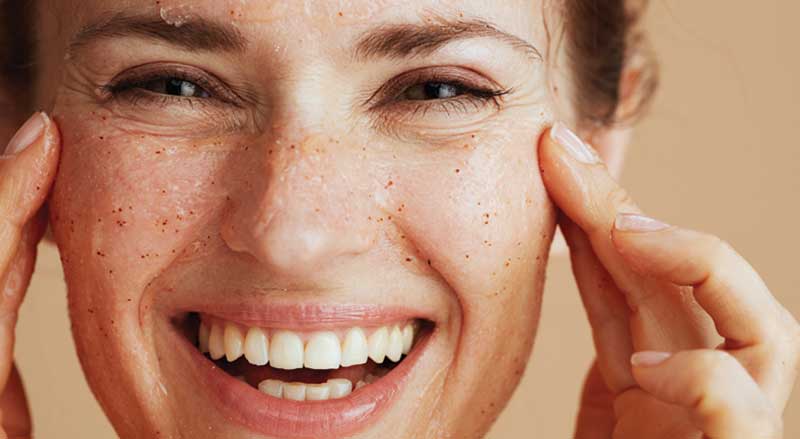
Exfoliate Carefully
- Use chemical exfoliants (like alpha-hydroxy acids or beta-hydroxy acids) once or twice a week to remove dead skin cells.
- Avoid physical scrubs, as they can irritate sensitive, acne-prone skin.
Consult a Dermatologist
- For persistent or severe acne, seek professional advice.
- Treatments like chemical peels, laser therapy, or isotretinoin (Accutane) may be recommended for stubborn cases.
Maintain Consistency
- Acne treatments can take several weeks to show results. Stick to your routine and avoid frequently changing products.
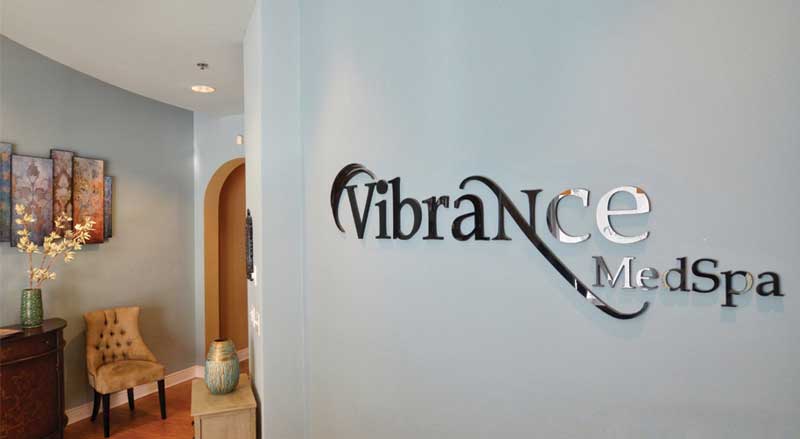
Acne can feel overwhelming, but it’s important to remember that clear skin is often a result of consistent care and understanding your skin’s needs. By incorporating these five habits into your daily routine and addressing the root causes of acne, you can reduce breakouts and improve your skin’s overall health.
Whether it’s through a gentle skincare regimen, dietary changes, or professional treatments, the journey to clear skin is achievable. Stay patient, stay consistent, and above all, remember that your confidence comes from more than just your skin—it comes from embracing your unique self, imperfections and all.
Don’t let acne ruin your day. Instead, let us help you prevent and treat acne. Our courteous, highly-trained physicians and aestheticians are ready to help you in every way. We will leave your skin glowing and your confidence will soar through the roof. Contact us today to schedule your skincare assessment.
